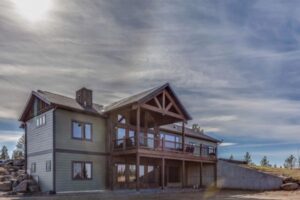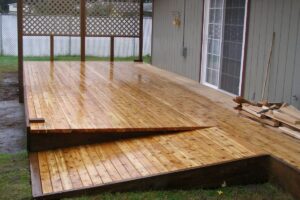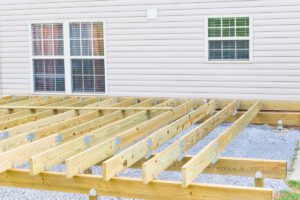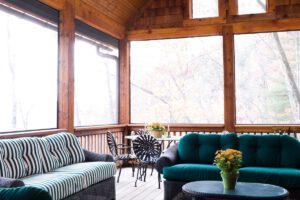Replacing a deck can significantly enhance your outdoor space, but planning for the associated costs is essential. The overall expense of a deck replacement depends on various factors, including the type of materials you choose, labor costs, the design’s complexity, and the deck’s size. Critical elements like deck boards, railing, posts, and additional features such as lighting or built-in seating will also impact the cost. Understanding these components will help you budget effectively and comprehensively prepare for the project.
I. Understanding Deck Replacement in the North Shore, MA Area
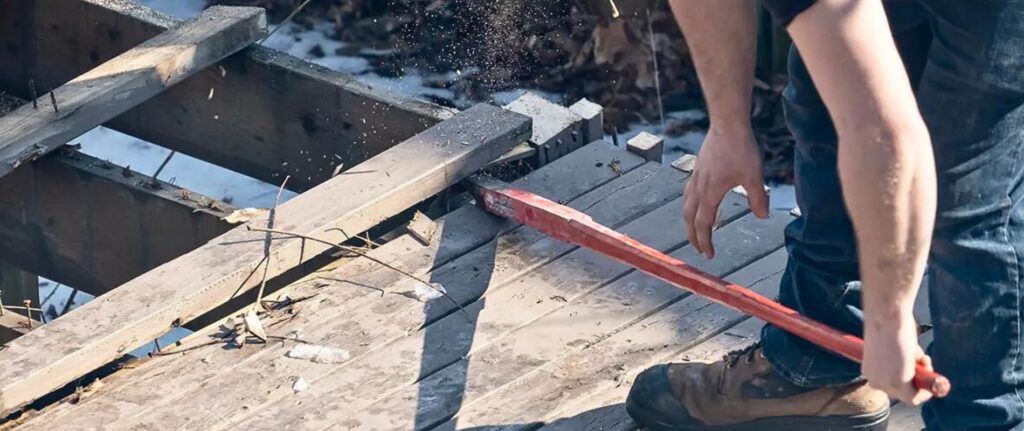
Deck replacement in the North Shore area starts with identifying signs of structural issues. Homeowners must decide between Deck repairing and replacing based on factors like the extent of damage.
A. When to Consider Replacement or Repair
Deck replacement becomes necessary when significant issues such as mildew, wood rot, or pest damage occur. Repairs may be ineffective if termite damage severely affects the deck’s structural integrity or deep mildew infiltration compromises the wood. Conversely, targeted repairs might be sufficient if only minor wear is evident and the deck remains stable. Assessing the severity of the damage helps determine whether a complete replacement or focused repairs are the most practical solution.
II. Factors Influencing Deck Replacement Cost
Several factors must be considered when estimating deck replacement cost. These include the deck’s size and design complexity, choice of materials, labor costs, permits, and inspections.
A. Deck Size and Design Complexity
Deck replacement costs increase with the deck’s size and design complexity. A larger deck requires more materials and takes longer to build, raising overall expenses. Additionally, complex designs that involve detailed demolition or specialized construction techniques can further drive costs higher due to the need for skilled labor. Features such as custom water drainage systems or unique patterns can add to the expense. When planning your deck, consider these factors and consult with your contractor for a precise estimate, including these complexities.
B. Choice of Materials: Wood, Composite, or Vinyl
Selecting the suitable material for your deck replacement impacts both cost and durability. Wood is traditional and visually appealing but requires regular maintenance. Composite and vinyl materials offer greater durability and lower upkeep, though they may come with a higher initial price. Additionally, the quality of hardware used, such as metal screws versus less durable alternatives, affects long-term performance. Consult with a deck builder to compare each material’s benefits, costs, and warranty options to find what fits your needs and budget.
C. Labor Costs
Labor costs for deck replacement include pressure washing, constructing stairs, cutting, and installing lumber, and pouring concrete for a stable foundation. Skilled professionals perform these tasks, and their expertise is reflected in the project’s overall cost. Be sure to account for these labor expenses in your budget. Detailed work and high-quality craftsmanship will enhance the deck’s durability and appearance. This all makes it essential to invest in experienced labor and services right from the start.
D. Permits and Inspections
Obtaining permits and scheduling inspections are essential for a compliant and successful deck replacement. These steps ensure the renovation meets local building codes and safety standards, protecting your investment. Permit fees and inspection costs should be included in your budget to avoid unexpected expenses. Properly managing these requirements helps ensure that your project proceeds smoothly and complies with all legal regulations. Let the pros handle the red tape and regulations so you can sit back and enjoy your new deck quickly and easily.
III. Average Cost Breakdown for Deck Replacement
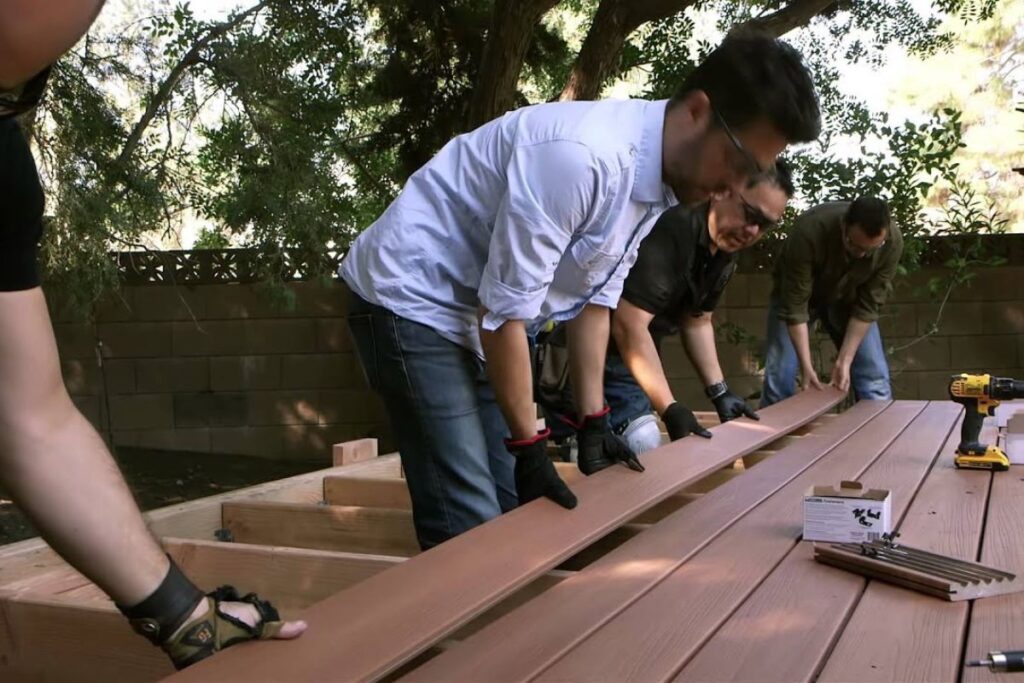
Replacing a deck in North Shore, MA can be a significant investment. On average, homeowners can expect to spend between $4,400 and $12,500 for a new deck, with the cost per square foot ranging from $30 to $60. High-end materials and intricate designs can push these costs even higher. It is essential to consider additional expenses such as permits, demolition of the old deck, and any necessary repairs to the underlying structure.
A. Average Costs for Materials
The average cost of deck replacement materials includes deck railing replacement costs, any necessary roof shingles if extending coverage, and quality fasteners. These components are crucial for both durability and design. When budgeting, include expenses for these materials to ensure you invest in high-quality options. This initial investment is essential for achieving a durable and visually appealing deck, and selecting suitable materials can provide long-term value.
B. Labor Expense Estimates
Labor costs for deck replacement depend on the contractor’s rates and regional factors. For example, areas with heavy snowfall may require additional structural support, increasing labor intensity and costs. Similarly, a sloping lawn or complex roof pitch can complicate installation, requiring skilled labor. Contractors might also charge more for working with hardwood, which needs specialized tools and techniques. Regional factors and project specifics should be considered when estimating labor expenses.
C. Additional Costs: Demolition, Disposal, Customization
When replacing a deck, factor in demolition, disposal, and customization costs. Demolition involves dismantling the old deck and adhering to safety regulations, which can add to the expense. Disposal of materials, such as old decking, may incur additional fees. If the new design includes custom features, further inspections, and adjustments may be required to comply with local regulations, impacting the project’s total cost. Talking with your contractor early on can give you a heads-up about what other expenses to consider.
IV. Tips for Budgeting Your Deck Project
Effective budgeting for deck replacement begins with obtaining accurate estimates to avoid unexpected costs. Homeowners should request detailed quotes that cover all aspects of the project, including the patio size and the flashing needed for joints near a metal roof. Planning the timing of the project can also lead to savings, as seasonal demand affects labor availability and material costs. By considering these factors, homeowners can minimize the risk of unexpected expenses, such as additional materials or unforeseen structural adjustments.

A. How to Get Accurate Estimates
To get accurate estimates for deck replacement, homeowners should obtain quotes from several contractors specifying the deck size and materials. If the project includes roof replacement, mention this to ensure all related costs are included. It is also helpful to check with your homeowner’s insurance to see if any expenses might be covered or if there are potential savings. Comparing multiple bids and understanding what is included will help you know the total cost.
B. Timing Your Project for Cost Efficiency
To maximize cost efficiency for deck replacement, timing is essential. Scheduling the project during off-peak seasons can lower prices, as contractors may offer reduced rates due to lower demand. Additionally, consider roof replacement costs and material choices, such as asphalt shingles, which may be cheaper at certain times of the year. Including pest control measures early on can prevent future issues and additional costs, making your project more economical in the long run.
V. Choosing the Right Contractor in North Shore, MA
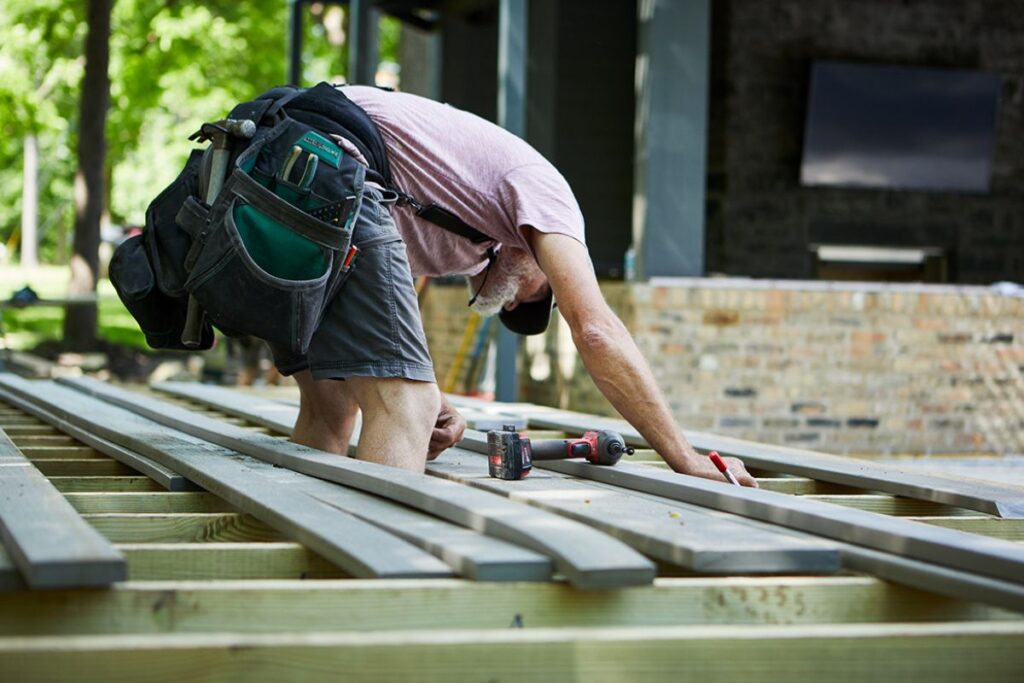
Selecting a contractor experienced in deck replacement is crucial. Look for one with a strong portfolio and positive reviews, demonstrating their ability to handle projects affected by weather and usage. They should recommend durable materials like steel to withstand local rain patterns and extend the deck’s lifespan. A good contractor will also assess the site for potential hazards and address any underlying issues before construction, ensuring safety and long-term durability.
Final Thoughts
Deck replacement costs in the North Shore area vary based on the design size, complexity, materials, and labor. Including durable railings and high-quality fasteners can raise costs but improve the deck’s safety and lifespan. Homeowners should get detailed quotes, plan the project timing, and clarify all costs upfront to manage their budget. Choosing a skilled contractor familiar with local material and labor specifics is essential for protecting your investment and ensuring the deck’s durability.

